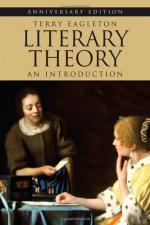
|
| Name: _________________________ | Period: ___________________ |
This quiz consists of 5 multiple choice and 5 short answer questions through Introduction: What is Literature?.
Multiple Choice Questions
1. Who silenced the Russian formalists, according to Eagleton?
(a) Liberals.
(b) Bolsheviks.
(c) Stalinists.
(d) Socialists.
2. Eagleton argues that the readership his book has attracted dispels the notion that literary theory is what?
(a) Misguided.
(b) Elitist.
(c) Boring.
(d) Simple.
3. How many decades, according to Eagleton, has there been a "striking proliferation of literary theory" since the publication of the Russian formalist's pioneering essay?
(a) Two.
(b) Six.
(c) Five.
(d) One.
4. According to Eagleton, "theory was a way of _______ literary works from the ________of civilised sensibility'"
(a) Studying; truth.
(b) Excluding; oppression.
(c) Dismissing; idea.
(d) Emancipating; stranglehold.
5. The Russian formalists rejected what kind of doctrines that had influenced literary criticism?
(a) Quasi-mystical psychoanalytic doctrines.
(b) Quasi-mystical symbolist doctrines.
(c) Quasi-mystical fictional doctrines.
(d) Quasi-mystical religious doctrines.
Short Answer Questions
1. What is the name of the Russian formalist who published the pioneering essay that is the "beginnings of the transformation which has taken over literary theory in this century"?
2. For Eagleton, hostility toward theory means what?
3. Eagleton's goal in "Literary Theory: An Introduction" is to provide a comprehensive account of literary theory for whom?
4. The distinction between fact and fiction in defining literature is what?
5. For the economist Eagleton discusses, "those economists who dislike theory or claimed to get along better without it" were what?
|
This section contains 293 words (approx. 1 page at 300 words per page) |

|




